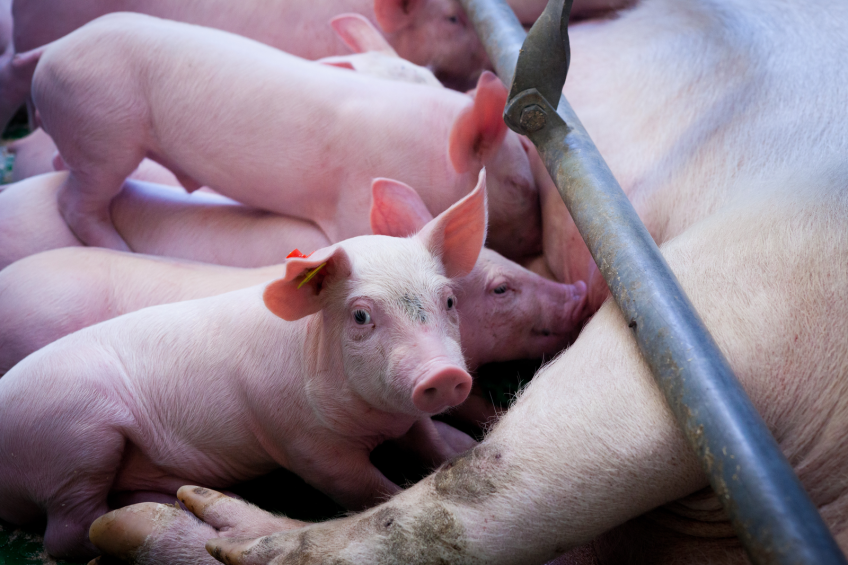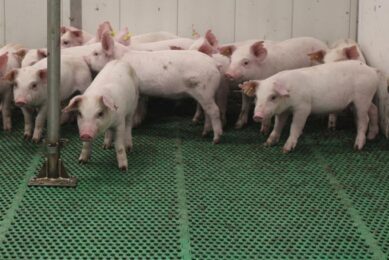Selecting for pigs with healthy intestinal flora

Selecting pigs with healthy intestinal flora genes may be able to reduce agriculture’s use of antibiotics and thus reduce the problems of antibiotic resistance. New knowledge paves the way for this opportunity.
A team of Danish and Australian researchers write in the scientific journal Glycobiology that a certain variant of the FUT1 gene has a significant impact on gut flora composition of pigs. These genetic differences may be important to gut health in pigs and, as a consequence, their need for antibiotic treatment.
Inner microbial universe essential for animal health
A press release by Aarhus University, Denmark, explains that there is an entire world of beings in the gut of humans and animals. This inner microbial universe is essential for animal health. Balancing the composition of the gut flora and, consequently, body health depends on a wide range of genetic and environmental factors, which understanding only recently has been growing.
In the course of her PhD studies, Marianne O. Hesselager, Department of Molecular Biology and Genetics, Aarhus University, discovered that naturally occurring variants of the FUT1 gene affect the way in which certain sugar structures behave in the intestine. This is of significant importance to intestinal bacteria and their ability to attach themselves to the intestinal lining and colonise.
Also interesting: Selecting pigs to better meet Asian conditions
Western pig breeds may not always come fully prepared for the Asian reality – full of (different) pathogens and different market needs. A Thai breeding network aims to select genetic lines – resistant to disease and yielding higher lean meat percentages.
Control of sugar and bacteria
In order to understand this mechanism it is necessary to zoom in on gut biology and chemistry. In pigs, certain sugar structures are present on the surface of the intestinal mucosa. These sugar structures, the press release explains, are involved in protein glycosylation in the gut. This means that they bind to a protein in a certain way – mainly to improve the functionality of the protein.
Hesselager explained in the press release, “We discovered that FUT1 gene variants have a major impact on protein glycosylation. A certain variant of the FUT1 gene changes the ways in which some of the sugar structures behave and this is very important to the gut flora composition. We noticed that especially Prevotella and Lactobacillus, which are the most frequent bacteria found in the intestines of piglets, colonised the intestine in the FUT1-307G/A- genotype.”
Also interesting: Pigs’ genetic code altered to tackle ASF
African Swine Fever (ASF) may be defeated by a technology which changes pigs’ genetic codes, according to UK scientists.
Composition of specific sugar structures
The university’s press report on the study concluded that the research results contribute to an improved understanding of the ways in which genetic elements control the composition of specific sugar structures and thus also control the bacteria colonisation in the intestine.
The media report closed off, saying “Genetic selection provides a potential for finding other ways to improve gut health in industrial pig production without having to resort to a massive use of antibiotics.”
The article in Glycobiology was written by Marianne O. Hesselager and Emøke Bendixen, Aarhus University, Denmark; Arun V. Everest-Dass and Nicolle H. Packer, Biomolecular Frontiers Research Centre & Macquarie University, Australia; Morten Thaysen-Andersen, Macquarie University, Australia.











